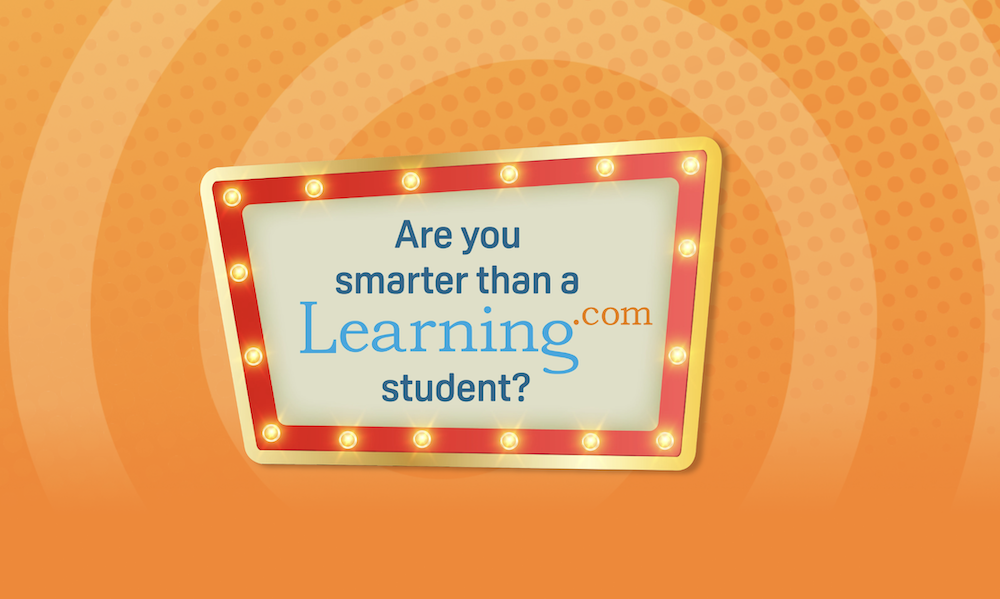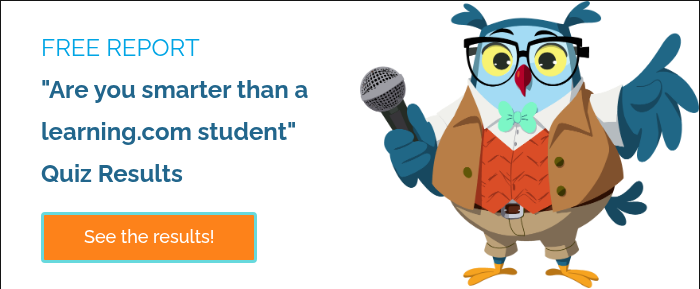Kids are growing up in a world where AI tutors guide their learning, social media algorithms shape their opinions, and misinformation often feels indistinguishable from truth.
And it’s not just their world — it’s ours, too.
That’s why, at ISTE 2025, we flipped the script. Instead of asking what students know about digital literacy, we challenged educators to show how well they understand the new rules of today’s digital world.
With “Are You Smarter Than a Learning.com Student?” we asked questions from Learning.com’s curriculum, featuring real-world scenarios involving AI, persuasive design, digital ethics, and online safety — core concepts to prepare students for success in school, work, and life.
Hundreds of educators and administrators took the quiz at ISTE. Only a handful aced it.
Learning.com at ISTE Live
ISTE is one of the most influential edtech conferences in the country, with over 16,000 educators and technology leaders from all across the nation attending. This year’s event in San Antonio, Texas, proved once again to be where the future of learning is shaped.
Learning.com stood out among 500 exhibitors — not just for our quiz, but for the meaningful discussions it sparked about the future of digital skills. To continue the conversations we hosted a packed happy hour at Ruth’s Chris on the Riverwalk, where educators came together to learn more, make new connections, and reconnect with longtime friends.
Topping it off, Learning.com’s EasyTech digital literacy and citizenship curriculum was named Tech & Learning’s Best of Show for middle school, based on innovation, usability, performance, and potential impact.
Takeaways from ISTE 2025
As more and more people took the quiz at our booth, one thing became clear: most adults struggle with the same digital literacy concepts that Learning.com’s K-8 students are mastering.
In fact, 75% of the educators and administrators at ISTE who took our the quiz didn’t pass.
Take a closer look at the results — what they got right and where they missed the mark — in our downloadable insight report:
The findings echo national trends. Pew Research reports that most Americans don’t understand how large-language models like ChatGPT work or what a deepfake is. While almost every job requires digital skills — 9 in 10, according to some estimates — not enough Americans have the foundational skills needed for those roles. For many adults, new technologies entered our everyday lives faster than we could learn to fully understand them.
But for our children, digital literacy isn’t optional: It’s just as foundational as reading and math. They can’t afford not to understand how their data is being collected, what makes artificial intelligence work, or how platforms are engineered to compete for their attention.
Thankfully, students don’t have to navigate this alone. With proven roadmaps and curriculum like EasyTech, educators can help students build the digital fluency they need now, and for their future success.


